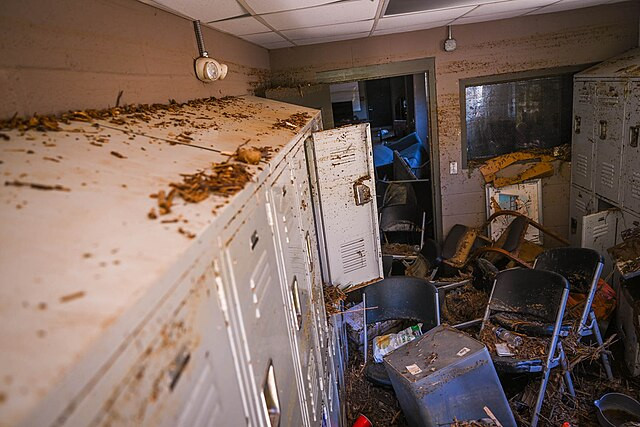Florida homeowners are facing a growing insurance crisis in the aftermath of Hurricanes Helene and Milton, with tens of thousands of insurance claims being denied, leaving many in financial uncertainty. According to data from the Florida Office of Insurance Regulation (FLOIR), more than 50,000 claims have been closed without payment, exacerbating the challenges faced by property owners who are struggling to rebuild after the storms.
The latest data reveal that 19,068 of the 57,415 residential claims filed after Hurricane Helene have been denied, and 27,834 of the 202,989 claims related to Hurricane Milton have also been rejected. These figures highlight a growing trend in Florida, where claims denials are becoming more frequent, leaving homeowners grappling with the financial burden of repairing their properties.
The reasons behind the high number of denied claims remain somewhat unclear, as FLOIR has not provided specific explanations for the rejections. However, industry experts suggest that many of these claims likely failed to meet the policy deductibles or were related to damages not covered by standard homeowners' insurance, such as flood damage. In Florida, flood insurance is typically sold as a separate policy, and many homeowners remain uninsured against this peril.
According to Newsweek, Mark Friedlander, corporate communications director for the Insurance Information Institute, explained that the majority of denied claims may be related to flood damage, which is not covered under traditional homeowners' insurance policies. "If you're filing a flood loss with your property insurer, it's going to be denied," he said. Friedlander also pointed to high deductibles as another major reason why many claims fail to be compensated. "If your deductible is $10,000 and your damages amount to $8,000, there will be no payout," he added.
The hurricanes, which struck Florida's Gulf Coast in late September and early October, have caused widespread devastation. The FLOIR estimates insured losses for Hurricane Helene to total approximately $1.44 billion, while the losses from Hurricane Milton are projected to reach nearly $2.88 billion. These staggering figures underscore the extent of the damage, but many homeowners are left without financial assistance due to claim denials.
In addition to the financial strain caused by denied claims, Florida homeowners are already grappling with some of the highest insurance premiums in the country. The average annual premium for a home valued at $300,000 is now around $5,527-more than double the national average. This has created a significant burden for residents, and for some, the added challenge of having claims denied is pushing them to seek alternative solutions, such as federal assistance.
For homeowners whose claims have been denied, the Federal Emergency Management Agency (FEMA) may offer a partial safety net. Friedlander noted that some residents may intentionally file claims knowing they will be rejected, in order to qualify for FEMA emergency grants. "In order to qualify for FEMA grants, you must prove that you did not have insurance coverage for the loss," he explained. A denied claim letter from the insurer is often required as part of the FEMA application process.
Despite the challenges posed by the current insurance landscape, Friedlander reassured residents that Florida's insurance market remains resilient, thanks in part to recent legislative reforms aimed at stabilizing the system. However, executives at Weiss Ratings, a Florida-based independent ratings agency, have raised concerns about the sheer volume of claim denials, warning that it represents a "double tragedy" for homeowners who have diligently paid their premiums but are now struggling to rebuild.
"The volume of denials is shocking," said Martin Weiss, founder of Weiss Ratings. "Homeowners are being victimized twice-first by the hurricanes, and now by the insurance companies." Weiss also criticized the lack of transparency in the claims process, noting that it is unclear whether insurance companies are taking advantage of vague policy language to deny claims.
Weiss pointed out that the problem is not limited to Florida, as insurers across the country are facing increasing pressure from catastrophic events and rising costs. Data from Weiss Ratings indicate that denial rates are exceeding 50% in many states, raising questions about the integrity of the insurance industry's response to disasters.
For Florida residents, the situation is particularly dire. The state's unique geography makes it especially vulnerable to hurricanes, yet a growing number of homeowners are choosing to go uninsured due to the rising cost of coverage. Around one in seven homeowners in the state is now without insurance, according to industry data, creating a precarious situation for many families.
In response to the crisis, experts are urging consumers to carefully research their insurance providers and policies before filing claims. Weiss advised homeowners to seek out highly-rated insurers, consult independent agents when disputes arise, and consider legal action if necessary. However, he cautioned that new legislation in Florida may make it more difficult for policyholders to win such cases.
As the fallout from Hurricanes Helene and Milton continues, there are growing calls for the Florida legislature to address the issue by implementing greater transparency and accountability within the insurance industry. "Consumers deserve to be treated fairly and to have access to clear, accurate information," said Weiss. "This is not a game-it's people's lives and livelihoods at stake."




